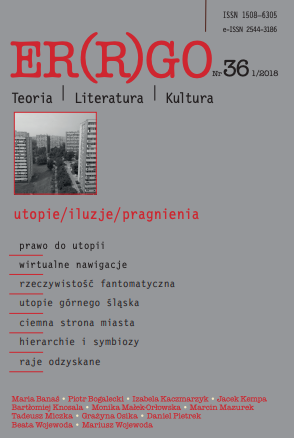Utopia robotniczej Arkadii? (na przykładzie pracy Hermanna Reuffurtha „Giszowiec. Nowa górnośląska wieś górnicza”)
Utopia of a working-class Arcadia? (based on Hermann Reuffurth’s „Giszowiec. Nowa górnośląska wieś górnicza” (Giszowiec. A new Upper-Silesian coalmining village.))
Author(s): Izabela KaczmarzykSubject(s): Sociology
Published by: Wydawnictwo Uniwersytetu Śląskiego
Keywords: Górny Śląsk; dziedzictwo przemysłowe; regionalistyka
Summary/Abstract: The article is an attempt to understand the category of utopia with reference to the accomplished architectural project of Giszowiec (Gieschewald) – a patronal company town situated in Upper Silesia. The starting point of the reflections on the character of Giszowiec is the concept of happiness by W. Tatarkiewicz who in his work “Analysis of Happiness” („O szczęściu”) claimed that it could be achieved only if everything was well-planned and rational in life. These two rules – of rationality and precision in the arrangement of every detail of the estate, so that all its inhabitants (the workers of Bergwerksgesellschaft Georg von Giesches Erben industrial concern) could lead happy and peaceful everyday lives – were the basis of Zillmans’ architectural project. The project itself involved a housing estate of small cottage-like houses situated in a woody area and it resulted from pragmatism. It was a means of developing the sites which were rich in coal deposits. Nevertheless, it created an interesting architectural concept referring to the idea of a garden city, which made it possible to approach in an innovative way the issue of workmen’s housing provided by one of the biggest industrial concerns at the beginning of the 20th century.
Journal: ER(R)GO. Teoria-Literatura-Kultura
- Issue Year: 2018
- Issue No: 36
- Page Range: 113-128
- Page Count: 16
- Language: Polish

